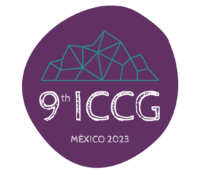Recent debates around Commons and Commoning present theoretical and practical avenues to re-imagine economic activity and social organisation amidst the pressing social, environmental and economic crises generated by late capitalism. Commoning is theorised as the social organisation of the commons, a network of practices which, according to Linebaugh “is an activity and, if anything, it expresses relationships in society that are inseparable from nature. It might be better to keep to word as a verb, an activity, rather than as a noun, a substantive” (2008:279). The tradition on commoning thus conceptualises the commons as an active process, seeking to escape from mere theoretical articulations and rather inviting us to look at examples where the commons are being practised. Turning the noun “commons” into a verb emphasises that it is an active process requiring constant performance. For political economist Massimo De Angelis, this performance implies a productive and reproductive capacity towards social transformation. De Angelis holds that there are three pillars of commons systems: 1- pooled resources or commonwealth. 2- a community of people willing to share and partake in the activities of the commons, known as commoners. 3- the act of doing in common or commoning understood asthe social and reproductive labor (2017:119). For De Angelis, capital and commons are differentiated systems ruled by different values and motivations. Whilst capital reproduces through accumulation, the commons reproduces through commoning. It is this (re)productive capacity which gives it the potential to construct systems that contest capital. This means that commoning projects are at a constant tension with capital, whilst constructing postcapitalist alternatives. This paper is making use of such theoretical approaches to investigate cooperativism and the construction of alternative economic systems in Mexico. In particular, this research looks into the potential of commoning as a form of organization vis a vis the global pesticide complex. The synthetic chemical Glyphosate, widely known as Monsanto’s Roundup has been a key ingredient in the intensification of monoculture and industrialized global food production. Despite the increase in output production, such incremental and intensified usage has also been posing a serious risk to human and environmental health (see Werner, Berndt, and Mansfield, 2022). According to La Via Campesina: “such agribusiness model has poisoned the soil, monopolised and contaminated the water, torn the forests, dried the rivers and substituted local seed with commercial and transgenic ones” (2017). In a post neoliberal move, the government of Mexico has forbidden the usage of Glyphosate as well as genetically modified corn by the year 2024. This poses a challenge to the Mexican capitalist agriculture industry since there is no chemical replacement to the effectiveness of such herbicide. Recent publications have shown that alternative Mexican agricultures, inspired by indigenous traditions which reject such extractivist food production model, have been active in the regions of Yucatán, Campeche and Chiapas (El Kotni, 2021; Coster Bacilio, 2020; Pástor, Wahren and Concheiro, 2017). This community and cooperativist oriented agriculture is in line with the commoning ideas presented above. The ban of Glyphosate and genetically modified corn may well present opportunities to re-invigorate ongoing peasant efforts to provide commoning alternatives to capitalist modes of chemical food production. This research project will make use of ethnographic and qualitative methodologies, to engage with community-peasant responses providing agro-ecological alternatives to glyphosate- induced agribusiness in Mexico, delving into their motivations, narratives and challenges. As argued by Pástor, Wharen, and Concheiro “struggles for the land and indigenous and peasant territories, as well as socio-environmental struggles and self-determination struggles, showcase a different path for our America” (43:2017).
